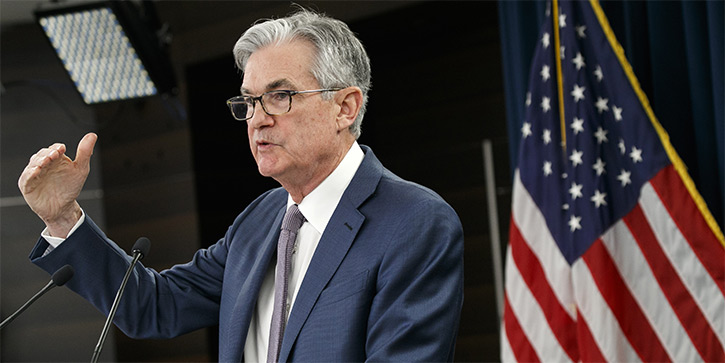
Complaint Department
-
 Jared Dillian
Jared Dillian
- |
- June 18, 2020
- |
- Comments
A few days ago, the Federal Reserve announced that it would buy a “broad portfolio” of corporate bonds, to go along with its ETF purchases.
Because of the Fed’s actions, corporations will be able to borrow at lower rates.
What could be wrong with that?
First, let me say that complaining about the Fed is its own genre of financial commentary. Some people elevate it to an art form. I usually don’t engage in it, because it’s unproductive and not conducive to making money.
Some commentators call the Fed an arsonist. If that is true, then go find some marshmallows.
Still, there is something about the corporate bond purchases that is a bridge too far.
Let’s think about what a Fed-free world would look like. Interest rates would be higher! Some corporations wouldn’t be able to service their debt, and would go bankrupt. If companies went bankrupt, layoffs would certainly follow.
Isn’t this well-intentioned, to try to prevent millions of layoffs?
It may be well-intentioned, but the unintended consequences are horrifying. These are bad companies, and the longer they stay around, the more capital gets misallocated. We should want that capital to be allocated to better uses.
As for the layoffs, we have a dynamic, free-market economy, and people can get jobs somewhere else. For that matter, there is also unemployment insurance. I don’t mean to be glib, but we’ve long accepted this sort of thing as a possible consequence of capitalism.
Firms die, and new ones are born. This is how we achieve economic growth.
What the Fed is doing keeps zombie companies alive. Companies that should be bankrupt.
So far, the Fed has already manipulated the Treasury market, pushing risk-free rates lower, so everyone can borrow at lower rates—including you and me. People buy cars and houses that they ordinarily wouldn’t be able to.
So some people get to buy houses—what’s the big deal? That is also a misallocation of capital. Maybe some people have no business buying a house.
The Seen and the Unseen
It is all about the seen and the unseen.
Like what you're reading?
Get this free newsletter in your inbox every Thursday! Read our privacy policy here.
This is how capitalism works. You can’t have capitalism without failure.
This country was literally built on failure. It was built on the past mistakes of entrepreneurs. Nobody dies. People lose money, and they get smarter. That is how capitalism works.
The reason the US economy is so spectacular is precisely because we allow failure to an extent not allowed anywhere else in the world. If older firms don’t die, younger, better ones can never take their place. When you don’t allow failure, you lose dynamism from your economy.
When you talk about the Fed, people typically focus on the effects on inequality—which Chairman Powell himself denies. But it’s more than that, and more insidious.
Up until this point, we had the most dynamic economy in the world. And we were killing it.
This, however, is not capitalism. What we had twenty years ago was capitalism, though some people argue that we haven’t had capitalism since 1971—the year President Nixon suspended convertibility of dollars into gold.
Laissez-Faire
When was the last time you heard the words “laissez-faire?” It’s been ages. Today, everything requires an interventionist approach. It’s all about trying to preserve the status quo. And it comes from a fear of change.
In a crisis, everyone wants to do something. Instead, we should do nothing. I am fond of saying, “don’t just do something, stand there.”
When you are talking about large, complex systems (like the global economy) that are too complicated to understand, you are better off leaving them alone.
In middle school, I learned that the reason the Soviet Union failed was central planning—the idea that someone, somewhere can successfully direct the activity of millions of people. The invisible hand does a better job of that.
The Federal Reserve doesn’t have perfect knowledge of where interest rates should be. In the beginning of the crisis, when yields on corporate bonds blew out to double digits, we should have left them there. Things would have been fine.
At the time, the Fed was concerned that markets had “ceased functioning,” and they needed to provide liquidity. Liquidity would have returned over time. Double-digit yields have a tendency to attract courageous capital.
Everything the Fed has done has benefited the big over the small. The top ten companies in the S&P 500 will be the top ten companies in the S&P 500 ten years from now. Nothing will change, and discontent will grow.
You work in this business long enough, and you lose your capacity for outrage. I am not in charge, but I can tell you, if I were, things would be a lot different around here.
And Finally
Please enjoy my latest music, Underwater. It is as smooth as a gravy sandwich.
Jared Dillian
subscribers@mauldineconomics.com

 Jared Dillian
Jared Dillian